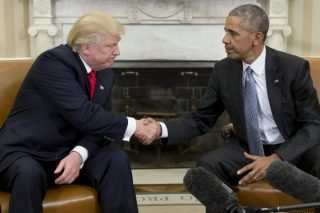Bullshit Brigade: Now with More NYT Bullshit [Action Item Included]
[NB: Check the byline, please. Action item at bottom. /~Rayne]
I know I’m not the only person who’s raging at The New York Times, yet again. They’ve somehow managed to do it again and at the worst possible time — the day the Build Back Better bill will go to a vote in the House.
And whoever wrote this latest bullshit managed to do it cloaked behind the Editorial Board byline, leaving no one individual exposed to a well-deserved pummeling.
I’m talking about this POS: Democrats Deny Political Reality at Their Own Peril
Utterly unglued from reality, missing completely that:
– this country has become more progressive over the last 20 years;
– the country on a bipartisan basis supports the Build Back Better bill, with a majority supporting each of its key deliverables;
– Congress doesn’t represent a true reflection of this country thanks to gerrymandering and the corrupting effects of Citizens United on elections;
– Joe Biden was elected by a majority of voters, winning the popular vote with the most votes ever, to deliver a bill which both fixed decades of infrastructure problems AND helped the nation recover from the pandemic.
Seriously, they missed the true bipartisanship:
NEW POLL W/ @InvestNowUSA: We find a majority of voters support the new Build Back Better plan by a +29-point margin.
We also find majority support for each major provision of the $1.75 trillion plan — including among Independents. https://t.co/GSjilgJSsk?amp=14:22 PM · Nov 2, 2021·Twitter Web App
The opening graf sets the tone for the entire op-ed:
Tuesday’s election result trend lines were a political nightmare for the Democratic Party, and no Democrat who cares about winning elections in 2022 and the presidential race in 2024 should see them as anything less.
It’s a disaster for Democrats when one goddamned state with a weak sauce Democratic candidate narrowly lost to their GOP opponent — and by narrowly I mean 2.4% margin, less than the typical margin of error?
A disaster when that same state has a history of voting for a gubernatorial candidate from the party opposing that in the White House?
And of course it’s a disaster when the incumbent Democrat wins re-election as governor in New Jersey, right?
Never mind the NYT had also published this piece:
Murphy Narrowly Wins Re-Election as New Jersey Governor
The victory over Jack Ciattarelli, which ended Democrats’ 44-year re-election losing streak in the state, was far tighter than polls had predicted.
Oh yeah, what a disaster, breaking 44 years of New Jersey kicking out one-term Democratic governors.
~insert image of Hindenburg on fire~
Not to mention the wide swath of Democrats and in some cases Democratic Socialists who won their mayoral races across the country which I noted in my previous post.
The NYT’s editorial board had the gall to summon neoliberalism, saying, “Bill Clinton’s mantra from 1992 of ‘it’s the economy, stupid’ is rarely out of vogue, and it certainly isn’t now.”
Which is why this bullshit must be dealt with, shoveled and tossed in the manure heap to rot. This economy isn’t like any economy we’ve seen before and certainly not the one in 1992. Neoliberalism and centrism haven’t worked if one pries their privileged head out of their ass and takes a look around at this country. After so many inane pieces on “economic anxiety,” the NYT still doesn’t grasp that anxiousness doesn’t belong just to those folks who were told in 2016 and earlier that immigrants were coming for their jobs.
In spite of their access to research and likely their own reporting, the NYT editorial board still hasn’t cottoned onto that 50 years of data show trickle-down economics promulgated in tandem with moderate austerity don’t work — not here, not across 18 countries.
Though the pandemic placed a premium on the lowest paid jobs, minimum wage workers still cannot afford rent anywhere in the country — if they can even find a place to rent.
Lower wage workers who can save enough for a down payment are living in their cars because they can’t find affordable homes to buy.
But sure, let’s do what worked in the 1990s during the dot com boom, when we still had a huge middle class which could save money and buy houses with good paying blue collar jobs.
With the pandemic COVID came for their jobs. Then Trump’s disastrous handling of the pandemic came for their jobs. With that came the societal Jenga following more than 750,000 COVID deaths and more than 800,000 excess deaths, creating greater uncertainty about who was going to work where and would they and their families and loved ones survive this tectonic shift.
What families have had to go through during the pandemic requires more than temperate centrism:
Did the babysitter survive their exposure to COVID? Are they vaccinated? Are the other children in the daycare vaccinate (no, of course not, we don’t have a vaccine and won’t for a while for little ones)? Are the other parents vaccinated? Who will stay home with the kids if school is closed again because of an outbreak? Will either parents’ employer fire them for taking the time to watch their children since not all jobs permit working from home? How will we make the rent, car payment, health care, food bill, even if we’re getting $300 month for each child if we can’t work because we have no daycare and school is remote again? Who will take the time needed to provide the extra coaching the kids need through at-home coursework?
But yeah, let’s be careful and restrained right now after nearly 22 months of a rolling massive death event. Let’s not rock the boat because Tuesday was a disaster and not the pandemic or decades of starving infrastructure combined with offshoring industry, critically damaging supply chains.
Don’t even get me started on how this nation is flirting with looming disasters like the 2007 I-35W Mississippi River bridge collapse when a third of the bridges in this country are in disrepair, and the mounting climate emergency demands hardening of infrastructure, not more centrist restraint.
Fuck you editorial assholes at The New York Times. You’re privileged, blinkered morons, the lot of you. How do you even sit up and take nourishment each day?
~ ~ ~
ACTION ITEM: You can tell those NYT editorial assholes to fuck off more effectively by calling your representative and senators IMMEDIATELY this morning and insisting they vote to support the Build Back Better bill. More specifically, ask your representative to:
Pass the infrastructure bill which has already passed the Senate
Pass the Build Back Better Act which is a reconciliation bill
And then ask your Senators to pass the Build Back Better Act.
Call them at Congressional switchboard at (202) 224-3121 or use Resist.bot.



![[Photo: Annie Spratt via Unsplash]](https://www.emptywheel.net/wp-content/uploads/2017/08/Books_AnnieSpratt-Unsplash_mod1.jpg)




